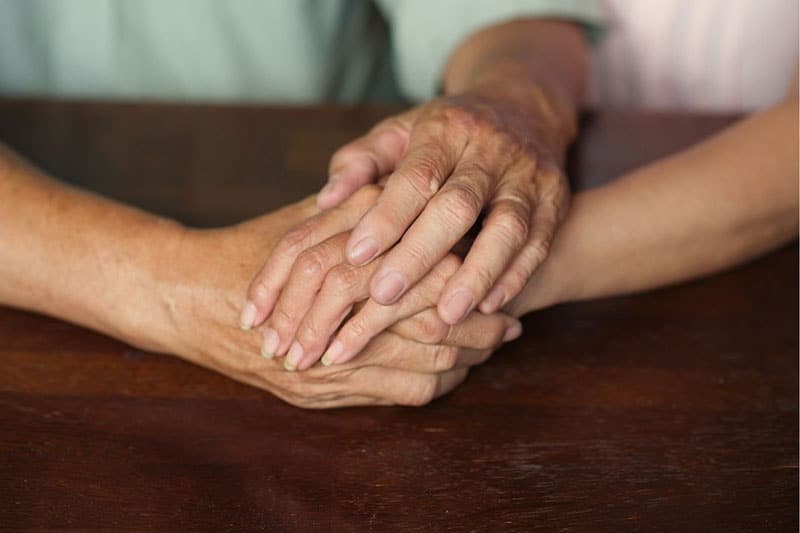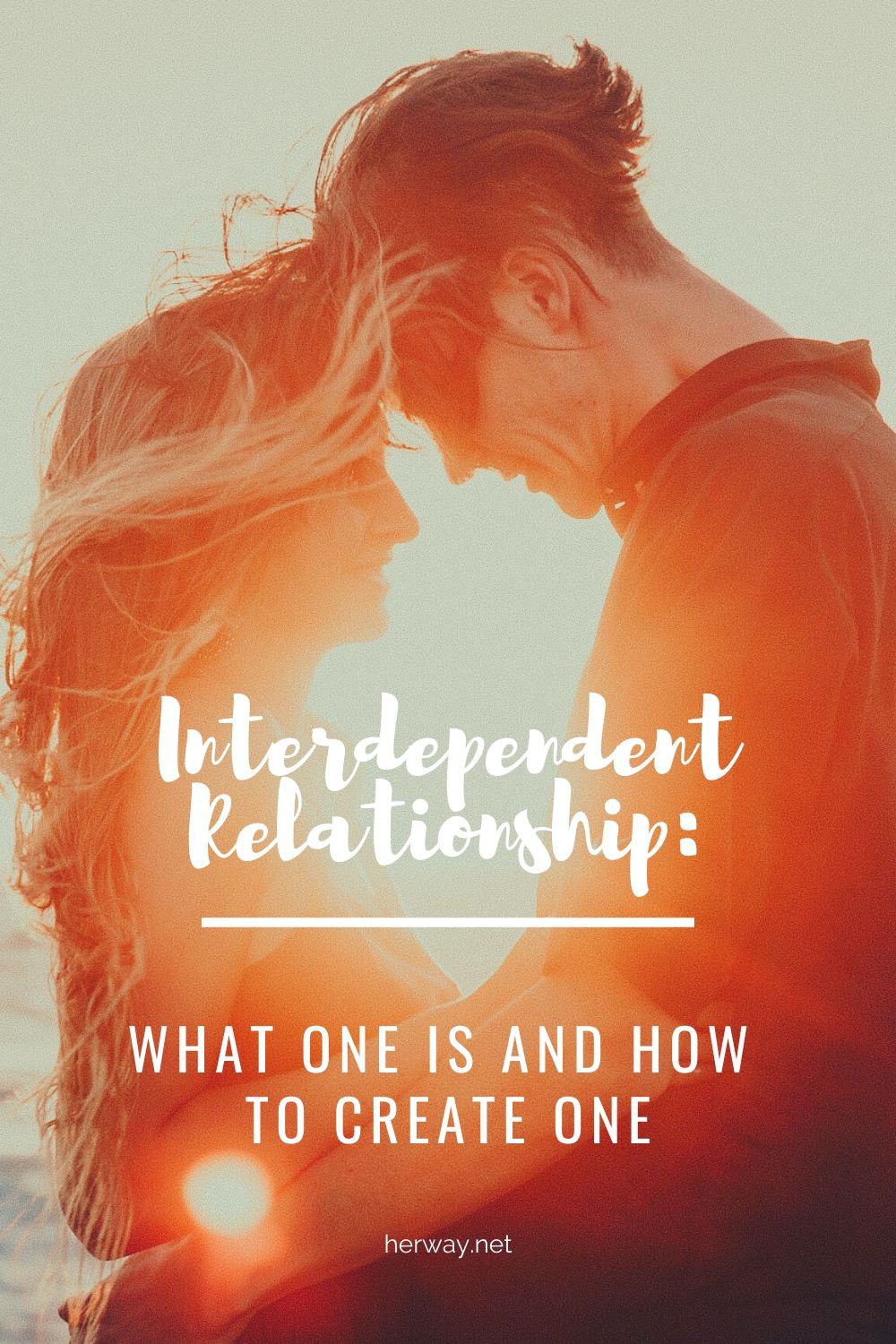An interdependent relationship is a relationship where partners rely on each other but maintain their autonomous identity at the same time.
Interdependence means that partners recognize and value the significance of the emotional connection they share while preserving authenticity within the relationship dynamic.
How does an interdependent person act in a relationship?
An interdependent person values vulnerability and recognizes it as a very important way of creating intimacy, which acts as a strong glue in every healthy relationship.
Simultaneously, they value themselves and don’t compromise their unique identity for the sake of their partner.
They let their partner be who they are without fear of betrayal, rejection, or misunderstanding.
Sounds pretty easy, right? Maybe, but we all know that real life is way more complicated than that.
Today’s society mostly focuses on praising independence, which is never a bad thing. On the contrary, it’s very much needed in the life of every individual.
Healthy independence reflects our freedom from outer pressure and imbalanced internal reactions.
It shows we’re comfortable to be ourselves and not scared to stand up for what we believe in or to serve others without feeling degraded.
However, there are a few things I often hear regarding the subject that concern me.
I’ve never understood why there’s so much misunderstanding when it comes to feelings and why showing them equals weakness.
When and why did feelings become something unwanted, burdensome, and shameful?
Every time independence is mentioned it’s part of a narrative that includes encouragement toward minimizing feelings and refusing help from others.
That’s understandable.
It’s obviously easier to go through life without the turmoil that sometimes comes with strong emotions, but are we really so advanced that we can just shut off our feelings and go about our day without thinking about other people’s or our own feelings?
I think that answering yes to this question is a sign of self-deception, deeply rooted in avoiding pain and honest self-reflection.
Especially considering it’s proven that emotional needs and meeting those needs dictate the quality of life and well-being of every individual.
Globally, we’ve never been more connected and disconnected at the same time and that’s a fact.
People all around the world are following the same trend of emotional detachment and share similar mental health issues and I don’t think that’s just a coincidence.
It doesn’t matter what kind of interaction you prefer – online, something tangible, or both – you and I crave interaction, attention, and emotional support from other living creatures and that determines our mental health.
It’s important, especially in a romantic relationship, to allow the other person to care for us and give us their love without feeling weak and less capable.
If you’re more on the avoidant/independent side, try letting your partner do things for you even when you can do them alone. Everyone loves to feel needed.
We’re innately affectionate beings that long for love and harmony. We naturally tend to measure our self-worth based on how others react to us and treat us on an intimate level.
Unfortunately, as a result of shunned and ridiculed vulnerability, we’ve ended up with generations of people who’ve grown up insecure and undervalued and have become the opposite of independent – they’ve become codependent types.
Codependency is characterized by lacking trust in oneself and having poor self-esteem, having difficulty identifying feelings, letting go, communicating, and making decisions.
A codependent relationship is a relationship in which one person sacrifices themselves and their own needs to make their partner happy.
This kind of imbalance creates toxic environments and unhealthy relationships that damage people’s lives.
Codependence usually includes some kind of emotional or physical abuse.
A codependent person feels like they have no value if they aren’t making some drastic sacrifices for their partner and that’s the only time when the codependent feels happy.
They feel they must be needed by this other person to have any purpose.
While independence leaves us emotionally malnourished, dependency causes problems with identity and a sense of self.
A self-centered, success-oriented, and money-hungry system and mentality have made us move values of genuine respect, care, love, and responsibility lower down our scale of priorities.
Interdependence is a model of relationship that stands in the middle between independence and dependence. It doesn’t lack and it’s not excessive.
It’s based on an effort to acquire personal growth as well as growth as a couple and can be characterized by the following things:
Characteristics of an Interdependent Relationship
Healthy boundaries
Every human being has their limits and boundaries that help them communicate.
Boundaries aren’t designed to keep us separate from people but to protect our personal space even in intimate relationships.
They are shaped by our life experiences, culture, and religion and they are built through learning to say no.
Clear communication
Clear communication is effective communication.
That means it’s not only used to exchange information but also to understand everything that stands behind that information: All the emotion and intention.
Taking personal responsibility
To take responsibility for your life is to take responsibility for your thoughts and feelings because that’s what experience is made of.
In order to have a healthy relationship, acknowledging mistakes and taking responsibility is a must.
Active listening
Active listening means being fully concentrated on what’s being said. It’s giving attention to the speaker rather than passively hearing the message.
It means engaging and making sure the other person feels heard.
Different personal interests
While it’s important to spend time together, it’s also very important to have some interests you can enjoy without your partner. You shouldn’t stop doing what you love because of your relationship.
Every healthy long term relationship consists of individuals who have their own hobbies.
Being open without fear of being judged
A balanced relationship requires a safe space where individuals can freely express themselves without fear of being judged and ridiculed.
This kind of relationship helps build trust and allows sincere communication and therefore means more easily solved issues.
How to Build Interdependency
Know what matters to you
Be clear and vocal about the things that matter the most to you. Introduce your partner to everything you find valuable so they know they need to be respectful toward things you care about.
Ask for what you want
Don’t be shy to ask for what you want and need. Stating your needs clearly makes doubtfulness disappear.
After all, your partner wants the best for you – but sometimes they don’t know what that is. The key is to communicate needs clearly and always explain your point of view.
Spend time with people other than your partner
Sometimes we get overly immersed in romantic relationships and we forget to invest time in other relationships in our lives.
Having a diverse friendship group and catching up with your family is a great way to balance your social life and also give yourself and your partner enough space.
It’s no surprise that we nag and get grumpy after spending too much time with the same person.
Let yourself miss each other for a while and you’ll see how much you actually appreciate each other’s company.
Never forget about your personal goals
Many people focus on their significant other too early in the relationship and forget about their personal goals and dreams that are not necessarily related to their partner’s.
Don’t make this mistake.
A partnership is about working together for the same goal, but that goal includes the well-being of both individuals.
So, in order to feel good and fulfilled we must concentrate on our own achievements as well as our mutual ones.
Say no when you feel like saying no
Love doesn’t mean saying yes to everything. In fact, love is about mutual understanding and satisfaction, maintaining healthy boundaries, and making the other person feel comfortable with you.
Don’t fake your feelings and get caught up in a web of dissatisfaction just because you didn’t want to hurt your partner with a simple no.
Almost every problem can be solved with a mindful conversation and agreement.
Don’t try to please others
Pleasing others leads to a one-sided relationship (codependency) and only creates more seemingly invisible problems that turn into big problems later on.
Other than that it creates internal confusion and pulls us away from our authentic self. Maybe you think you’re just being agreeable and drama-free but dimming your own light doesn’t do you any good.
Wrap up
If you feel like you’re leaning towards any of the imbalanced relationships, don’t let yourself think you’re failing at something. Relationships are fluid and changing.
They can be influenced and changed for good. Nevertheless, if you feel like you have a deeper problem you might want to consult a psychotherapist or search for other ways of help.
There’s nothing wrong with getting help and working on a relationship you deeply care about.
Interdependent relationships are a product of mature individuals who are set on making a healthy and supportive environment for themselves and their close ones.
They are not something that is given but worked for. That’s why we should never underestimate the power of humility, empathy, patience, and perseverance.
Take time to reflect on your life goals and relationship goals. Do you notice a behavioral pattern that bothers you?
How can you change it? Most relationship problems stem from irrational fears and lack of honest conversation.
The simple formula is to talk about problems and observe our own reactions critically instead of insisting on proving our point.
The more you become cognizant of the other’s strengths and flaws the more understanding you’ll be.
In the process, you’ll learn about yourself too. This will allow you to elevate yourself and your partnership and create a strong, long-lasting relationship.













